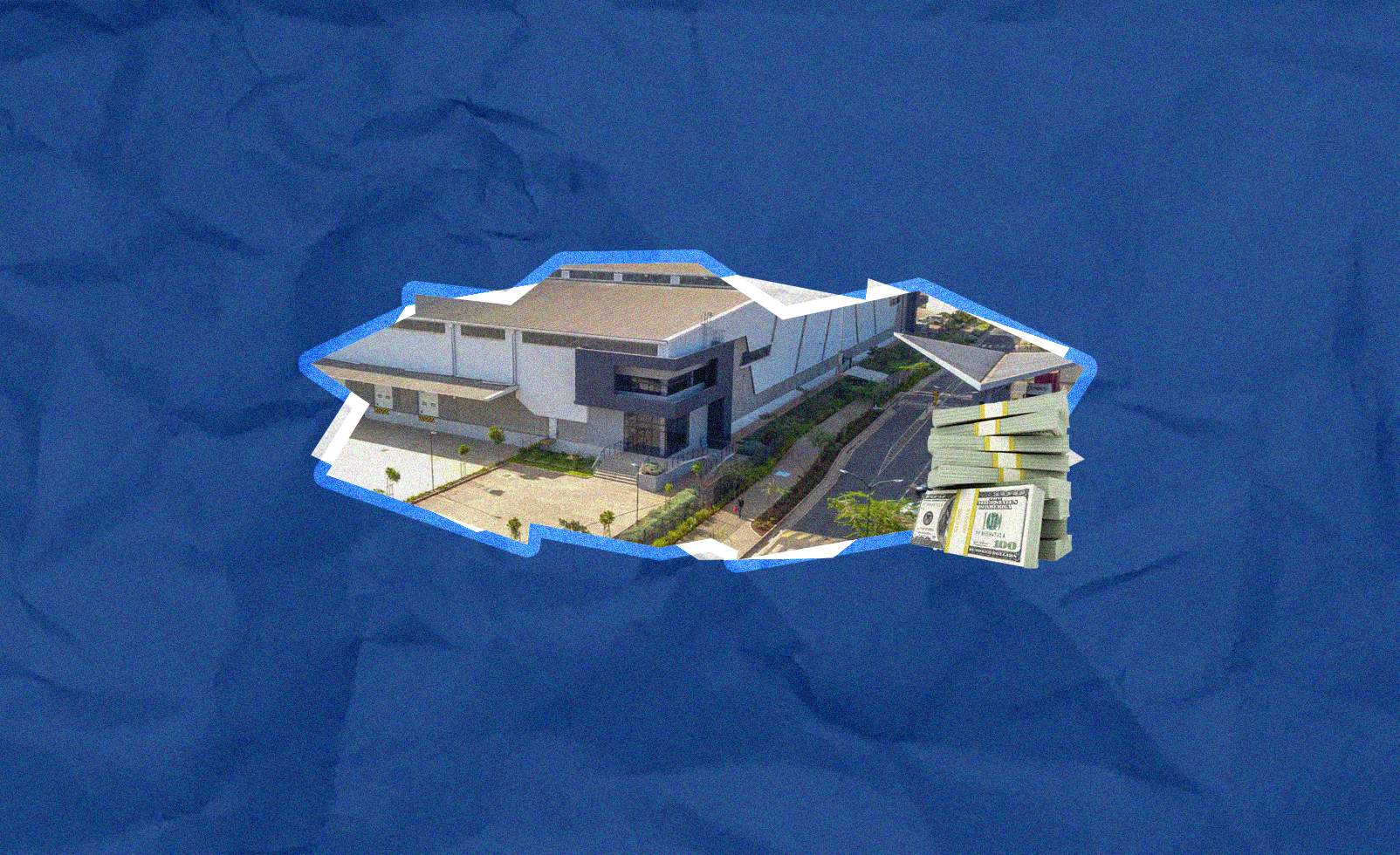Economic uncertainty is impacting Africa's real estate market attractiveness
Tilda Mwai . 4 months ago
Africa real estate outlook
capital investment

Share this post
Subscribe to our newsletter
The real estate sector in Africa, often touted for its potential and growth opportunities, has been grappling with a myriad of challenges, notably macroeconomic and political uncertainty, along with the repercussions of global tensions. These factors have converged to create a landscape where the attractiveness of real estate markets is increasingly influenced by core macroeconomic…
The real estate sector in Africa, often touted for its potential and growth opportunities, has been grappling with a myriad of challenges, notably macroeconomic and political uncertainty, along with the repercussions of global tensions. These factors have converged to create a landscape where the attractiveness of real estate markets is increasingly influenced by core macroeconomic indicators, leading to a noticeable decline in market activity across the continent.
In this article, we highlight the top real estate markets based on macroeconomic performance as well as key market nuances to watch out for.
- Botswana and Morocco rank at the top of the real estate market attractiveness index

The real estate market attractiveness index seeks to rank countries based on their relative stability. The index has incorporated six different core indicators that include currency changes, a country’s debt to GDP ratio, credit rating, inflation, construction costs and GDP growth rate. These indicators were then assessed across 17 of the major economies in Africa with a spread across East, West, North and South. Notably, Botswana and Morocco ranked at the top of the real estate market attractiveness ranking. This has been underpinned by the relative currency stability, low inflation rates and lower construction costs. For example, Botswana and Morocco recorded inflation rates at 3.1% and 4.3% respectively which is significantly low compared to Egypt’s 35.8% and Ghana’s 35.2%. In addition, Morocco’s construction costs per sqm are estimated at an average of US$ 600 compared to the all country average of US$ 1,366.
On the other hand, Ghana and Angola ranked as the least real estate attractive countries for 2023. Ghana’s performance has been impacted by its heightened inflation estimated at 35.2% effectively ranking as the second highest after Egypt, lower GDP growth rate and above average construction costs. Angola’s performance has been impacted by high currency depreciation rate with currency changes in the year to December 2023 estimated at 67% as well as a higher debt to GDP ratio estimated at 111%.
Interestingly, Nigeria also ranked as the third last market due to heightened currency changes (83.66% YTD), high inflation rate (27.33%) and high construction costs estimated at USD 1,700 per sqm.
- Currency changes remain the single most important impacting factor on performance
There is no doubt that currency performance is most often a great indicator of a country’s economic stability.However, investors currently have a reason to be jittery. With inflation already on the rise, increasing debt levels and potential default,countries are already seeing a cut back in investment preference.
So far, Nigeria’s Naira has recorded the highest rate of depreciation in the year to December 2023 with a 83% decline on the official rate.This has been followed by Angola’s Kwanza recording a 67% decline during the same period. Interestingly, historically stable markets such as Tanzania have also recorded a 7.5% decline during the period under review pointing to the continued stress in the macroeconomic environment across board.

However, Morocco has emerged as an outlier, ranking as the only country whose currency has appreciated against the dollar by up to 3%. This has been underpinned by a stronger macro economic environment pointing towards an overall recovery in different sectors including real estate driven by increased foreign investments and trade.
Generally, this currency performance is set to impact on commercial real estate leasing activity especially for retail and office sectors as well as green field investments financing especially for social infrastructure such as Affordable housing. Already, financing allocation, often influenced by Development Finance Institutions, is primarily dollar based. Continued local currency depreciation means that such debt will be expensive to undertake. With a limited domestic capital raising landscape, we are likely to see limited development pipeline in the majority of the markets with the only developments undertaken being previously negotiated ones.
A bright spot to this has been the development of alternative financing methods. Although still in their nascent stages, countries such as Kenya and Nigeria are actively championing the development of alternative domestic financing for real estate. Notably, this has led to increased momentum in Kenya’s REITs market. So far, three out of the four authorised REITs entities in the market have been listed over the past two years since 2013 when the first REIT was listed.
While in Nigeria, this alternative financing landscape has been reflected through an income fund shift. Institutional investors such as Actis have sought to raise capital through its inaugural West Africa income funds
- The subdued macro environment is impacting on the logistics sector growth.
Logistics warehousing ‘hype’ has cooled off across the continent with new development announcements at record lows during 2023. This has been attributed to the ensuing macroeconomic challenges that have seen drivers such as e-commerce and manufacturing slowdown. This has led to market exits by key manufacturers such as GSK in markets such as Lagos and Nairobi with a refocus on their business model while occupiers such as Twiga Foods in Kenya have had to consolidate their operations by shutting down over ten distribution centres earlier on in the year.
As a result, the markets are seeing limited new take up with the majority of the activity being driven by lease renewals. As such, the majority of the logistics developers are expected to continue offering market incentives in a bid to attract potential occupiers even as existing occupiers reassess their portfolios.
Interestingly, while there is a slowdown in demand, grade A warehouse rents have remained stable in markets such as Kenya at approximately US$ 6 psm. Still, currency depreciations are seeing developers record losses especially in the absence of dollar based leases. Additionally, occupiers are opting for shorter and flexible lease terms as a mitigating strategy to the subdued macro economic conditions
- Hospitality market remains the most active real estate sector
Interestingly, the hospitality market has remained the most active sector in terms of transaction volumes and development pipeline across the continent. In Kenya for example approximately USD 44.4 million has been expended in the sector between 2021 and 2023 through existing acquisitions such as three City Lodge hotels acquired by Actis in 2021, and Crowne Plaza Hotel by Kasada in 2022 and pipeline transactions such as Safari Club Hotel set to be acquired by Swiss-Belhotel International in Q1:2024.
Market activity has also been underpinned by a vibrant development pipeline. According to W Hospitality Group, approximately 482 hotels are set to be developed across the continent in 2023 compared to 447 in 2022. Egypt, Nigeria and Morocco rank as the leading countries in terms of development activity accounting for 103, 42 and 46 hotels respectively. Despite their relatively subdued macro economic environment, Egypt and Nigeria have continued to record considerable hotel investment interest.
This trend is expected to continue as developers seek to formalise the hospitality market as well as meet existing demand from international and domestic markets.
We love your feedback! Let us know what you think about Africa’s macroeconomic performance impact on real estate in Africa by emailing [email protected].
Subscribe to ei Pro to access affordable Real Estate data such as; sales rates, yields, supply drivers, and information on key real estate market participants who are active in the market.
Related News
You will find these interesting

Linah Amondi . April 2024
Impact North, a logistics firm jointly owned by Improvon Group and Actis, has launched the construction of an A-grade wa...
actis
improvon

Bisi Adedun . April 2024
asaba mall
Delta Mall

Bisi Adedun . April 2024
Last month, the Minister of Works announced that construction of the The Lagos-Calabar Coastal Highway project has begun...
Lagos-Calabar highway
landmark africa